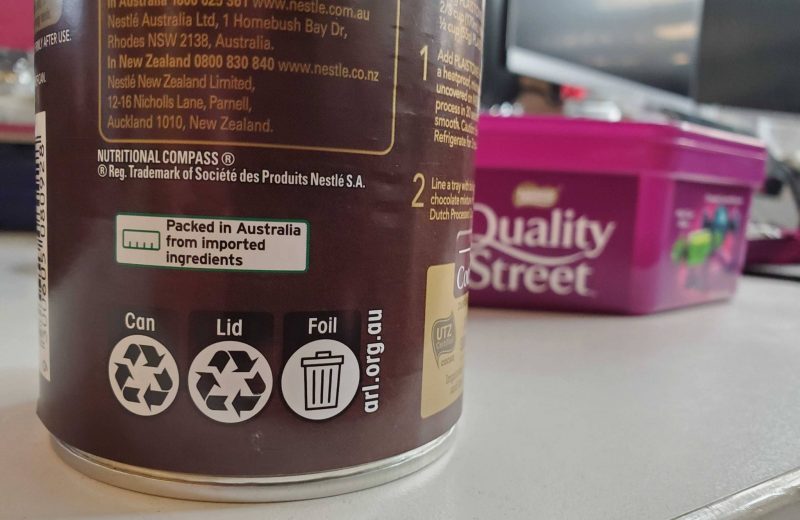The Australian Council of Recycling (ACOR) has released the results of an independent national audit of packaging environmental labelling in Australia.
The independent audit found that across supermarkets, takeaway outlets, and convenience stores in two capital cities found after only two years in market;
- 88% of the packaging components sampled were recyclable through either kerbside recycling or a supermarket-based return program
- 40% of products contain some form of recycling labelling instruction
- 23% of products on supermarket shelves contain the Australasian Recycling Label
The National Retail Association commends industry on their leadership and hard work to implement the ARL on this scale in such a short time frame.
Labelling is one of the critical success factors to support the delivery of the 2025 National Packaging Targets, aiming to achieve:
- 100% reusable, recyclable or compostable packaging
- 70% of plastic packaging being recycled or composted
- 50% of average recycled content included in packaging
- The phase out of problematic and unnecessary single-use plastics packaging.
It is also one of APCO’s priority actions under the Federal Government’s 2019 National Waste Policy Action Plan (2.14 – Improve consumer information to increase recycling rates and improve the quality of materials in kerbside recycling collection through the Australasian Recycling Label).
Brooke Donnelley, CEO of APCO praised industry stating “The ARL Program is continuing to grow rapidly and tracking well compared to similar programs being implemented globally. It’s fantastic to see key sectors within the packaging supply chain recognising the importance of labelling and we welcome their engagement and participation in the ARL Program moving forward.”
Paul Klymenko, CEO of Planet Ark commented that “The uptake has been significantly faster than comparable international labels, and the Australasian Recycling Label has been recognised by international bodies like the United Nations Environment Program as best practice when it comes to informing consumers how to best dispose of their packaging.”
However, more work needs to be done. The report found that 29% of plastic products had a resin code symbol which is often mistaken for a recyclability symbol, the Tidyman logo appeared on 15% of products sampled, including both recyclable and non-recyclable products and there was no consistent style, placement or sizing of recyclable labels.
Brooke Donnelly explained that “The report has identified something that APCO and our partners at Planet Ark and PREP Design have long recognised: that Australia needs a clear, concise and evidenced based label placed on every product and packaging type sold into the Australian market.”
Join the program
The ARL Program is free and available to all APCO Members. If you have any questions about the report or would like to find out more about the Program, please contact the Member Services Team on memberservices@packagingcovenant.org.au.

